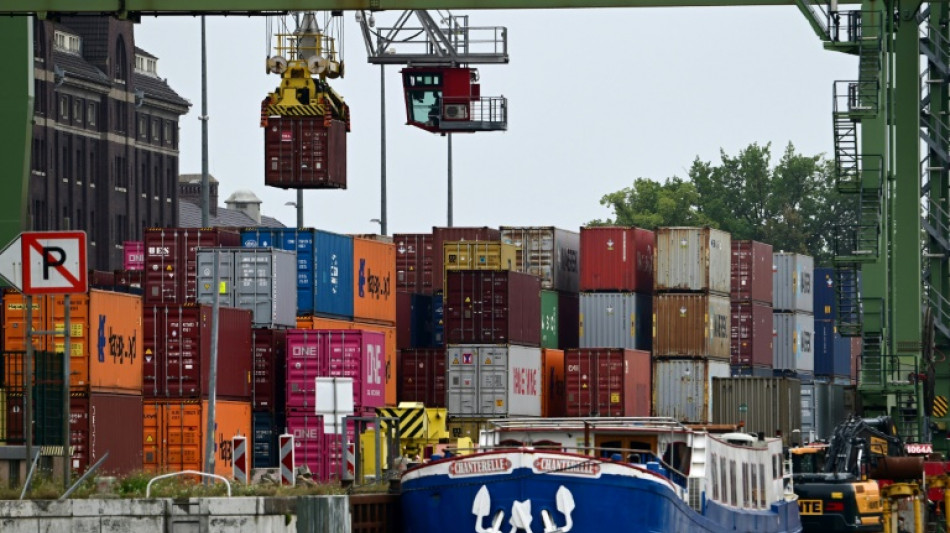
EU readies retaliatory list targeting US services

The EU executive is preparing a list of proposed restrictions on US services companies -- including tech giants -- should Brussels fail to strike a trade deal with Washington, European diplomats said on Thursday.
US President Donald Trump blindsided the European Union earlier this month by threatening to slap 30 percent tariffs on the bloc's goods, despite months of talks to get an agreement.
If they don't clinch a deal by August 1, Brussels has warned it will have no choice but to retaliate against Trump's steep levies because of their economic impact, and has drawn up two lists of US goods to target.
The European Commission, steering trade policy for the 27-country bloc, is also working on a list of American services -- including financial services -- it could hit with restrictions, for example on public procurement, EU diplomats said.
It could also mean excluding certain suppliers, one diplomat said, adding that the commission had not yet put forward any list to EU member states.
Any action on services would be in addition to two sets of retaliatory tariffs on goods: one put forward this week that targets 72 billion euros ($83 billion) of US products, and another worth 21 billion euros, drawn up in response to steel and aluminium tariffs.
One EU diplomat said the bloc could retaliate step-by-step, hitting the United States with first the smaller, then the larger counter tariffs on goods -- before potentially escalating to services.
The official also stressed the EU had yet to even approve the measures by vote and that they could still change, but another diplomat said Brussels would have no choice but to respond "forcefully".
Most EU member states want to keep options on the table but have backed the commission's attempts to try once again to get an agreement before firing off retaliatory measures.
The EU's top trade negotiator, Maros Sefcovic, jetted to Washington on Wednesday for talks with his US counterparts but the commission did not provide details on meetings.
There are questions over Europe's appetite for a damaging fight with Trump if he slaps on the 30-percent levies as promised.
But France has been pushing for Brussels to take a harder line and consider deploying its most powerful trade tool, known as the anti-coercion instrument, if negotiations with the United States end in disappointment.
Even if Brussels were to activate this so-called trade "bazooka", it could take months before any measures were taken, according to the rules.
First, the commission would have four months to investigate the third country it accuses of detrimental trade policies -- then member states would have eight to 10 weeks to back any proposal for action.
Only then would the commission have a green light to prepare measures, to take effect within six months.
E.Walker--SFF

 London
London

 Manchester
Manchester
 Glasgow
Glasgow
 Dublin
Dublin
 Belfast
Belfast
 Washington
Washington
 Denver
Denver
 Atlanta
Atlanta
 Dallas
Dallas
 Houston Texas
Houston Texas
 New Orleans
New Orleans
 El Paso
El Paso
 Phoenix
Phoenix
 Los Angeles
Los Angeles



